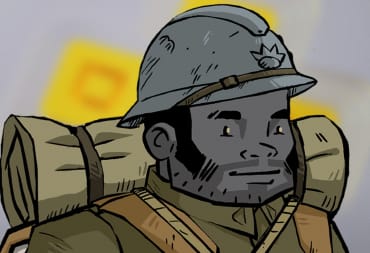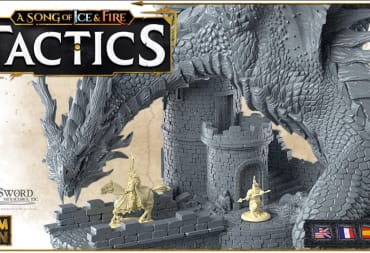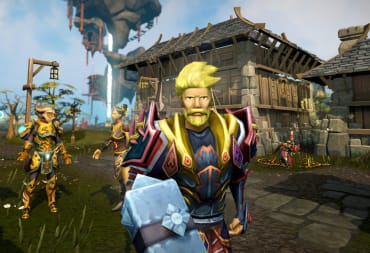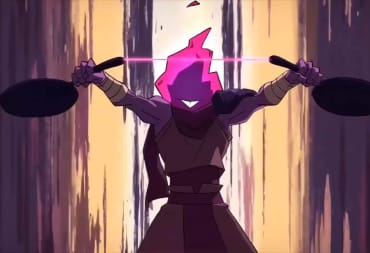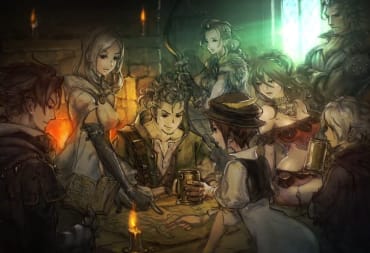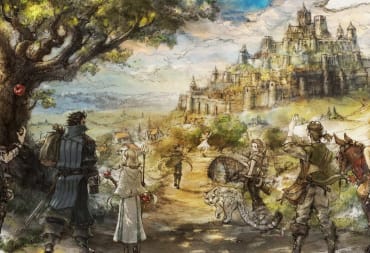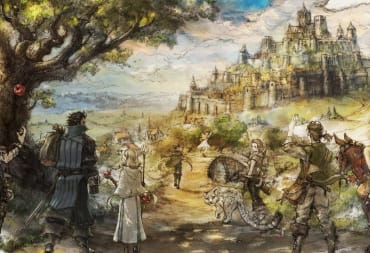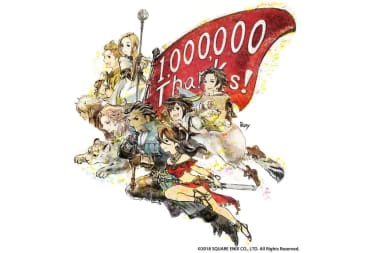The world of video games thrives on its 'epic nature.’ You have ‘epic narratives’ and ‘epic moments’ wrapped in ‘epic presentations,’ with all the flashiness that befits a Twitch generation. In a genre that tends to lean heavily on its tropes, often games that stray too far from what is familiar are met with confusion. Yet every so often, something strays from the road ahead of them, finding comfort in the rustic, dust-covered side paths, devoid of the noise many have become familiar with.
This year, the Nintendo Switch has the perfect game to travel that road, Square Enix’s Octopath Traveler. Developed by Square and Acquire and produced by Masashi Takahashi and Tomoya Asano of the Bravely series, Octopath Traveler is a game true to its name. It is eight individual storylines, with very little connecting tissue between them save for some post-game revelations once all eight of them are complete.
A lot of critics have been perplexed by this choice of storytelling. Most of that, of course, falls on expectations of what Octopath Traveler is. Role-playing games tend to fall into the realm of power fantasy, of the monomythic hero on a journey to save the world. All developers, from Obsidian to From Software play from the same handbook to an extent. Square, however, has chosen a different path for their game – they have chosen a path disinterested in a grandiose plot.
That is ultimately the strength of Octopath Traveler - the affection for simplicity. It is an RPG that shuns the “power fantasy” yarn. The heroes are not on a grand quest to save the world from evil. Instead, they interact with the world through their journey. Each story in Octopath is a vignette of simple travelers fighting for the mundane. Some tread old clichés such as revenge, others, a chance to find something rare or hunt something dangerous. The most remarkable are perhaps the most mundane, those who just wish to see the world and live in it.
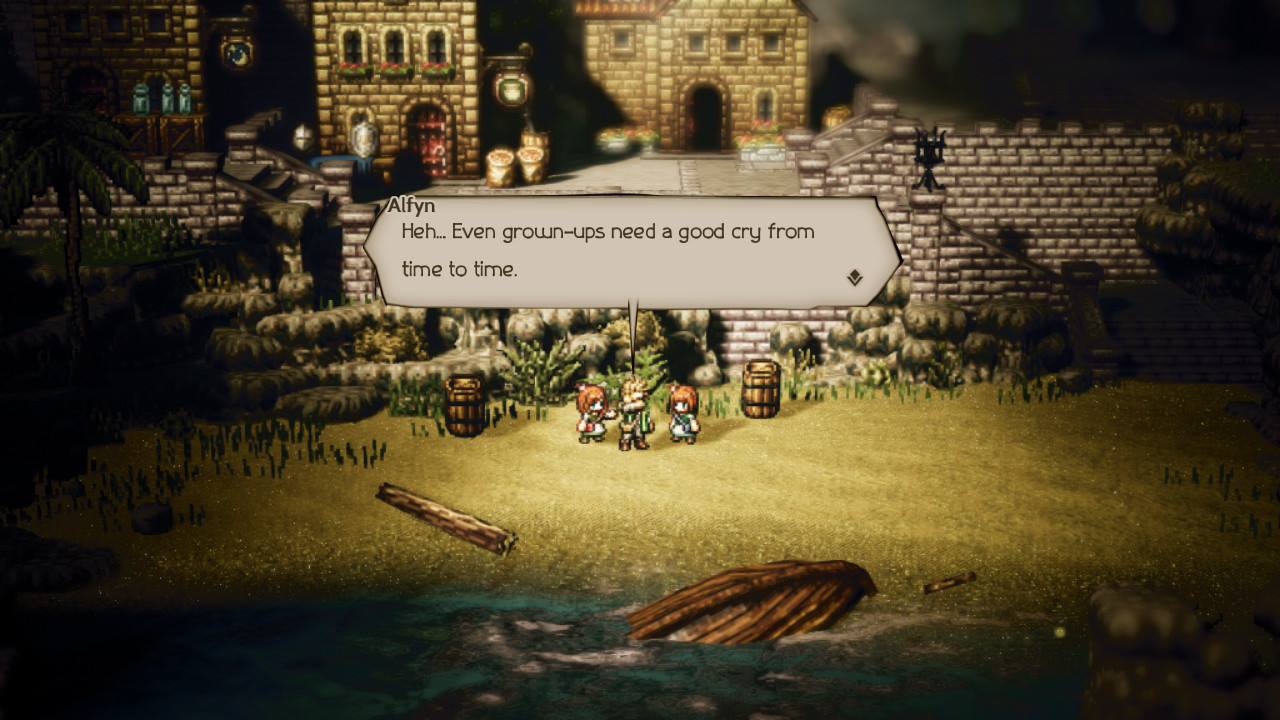
That is a refreshing take for an RPG. After years of the cliché of the heroes’ journey, thousands of hours of the same old hat adorned with different bows, Octopath Traveler trades it for something simple but eye-catching. It could have very well fallen into the epic storytelling tropes of a Mass Effect, The Witcher, or Final Fantasy. Instead, Square forged a path that has resulted in the best-written role-playing game in years.
A lot of this strength comes from toying with the status quo. For example, a few characters can “summon” aid in battle. Your stock Final Fantasy games transform them to gods of immense power, but here, they are mercenaries, farmers, even midwives you convince to join you on your journey for a time. Outside of the slew of monsters along the roadways, most of your primary boss battles are not gods, but humans whom you antagonized for that specific chapter.
Side quests are almost all relegated to the numerous towns you visit, with some of them showcasing NPCs on a journey of their own. These quests are easy to solve, typically involving the right combination of special abilities of your party to meet what they want. It is a motif in Octopath Traveler to show how everyone in the world is on their own journeys. Each one, from a woman aspiring to be a dragon tamer to a teen learning to become a hunter, is a personal story that serves as a minor foil to the stories of your characters. Often the game feels like a living world due to these sidequests, making them worth tracking down despite the “rinse and repeat” nature of solving them.
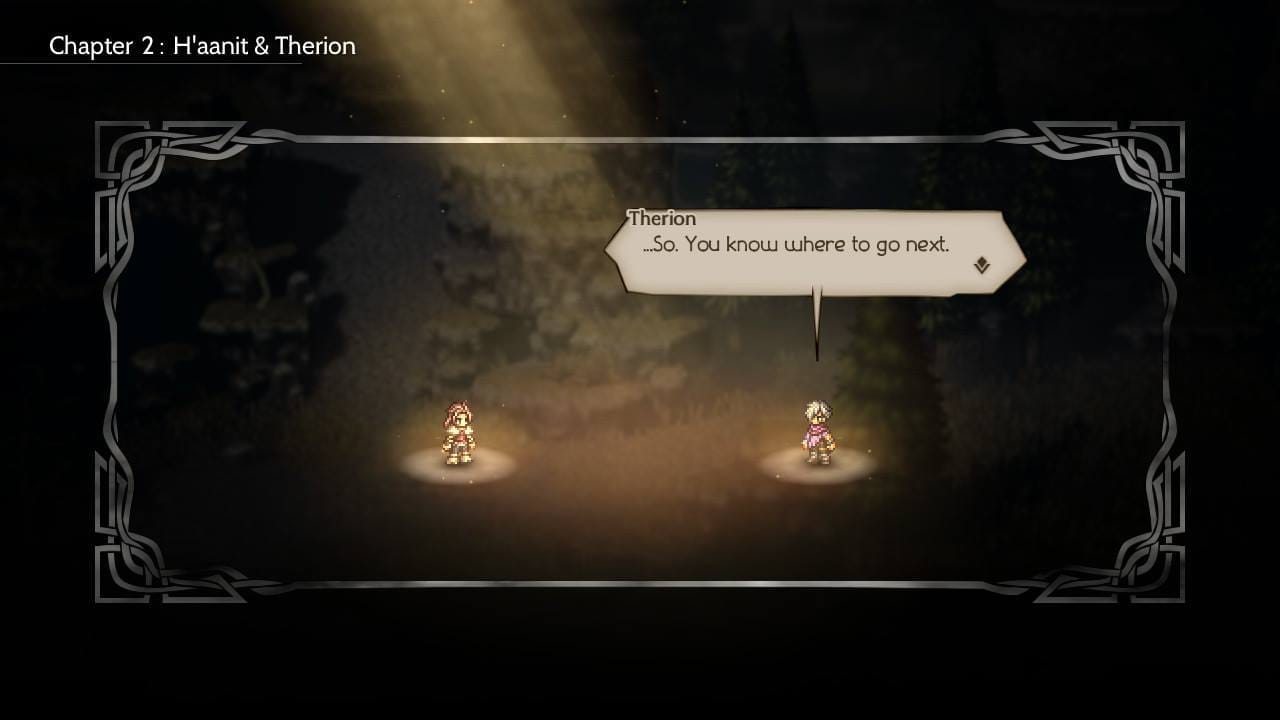
Of course, there are always some issues. Some of the eight stories and characters leave a bigger impression than others. Each story being a separate entity means little interaction with the party save for optional conversation scenes like the Tales series. The lack of interactivity and sometimes the convenience of the eight narratives is noticeable, but it is, ultimately, a nitpick.
Much of the game falls into a simple pattern as well. Each character has four chapters in their own stories, which involve heavy use of cutscenes, a short piece of investigation, a small dungeon, and a boss battle with a coda. In between that is the games general combat system which is entirely turn-based. Enemies have set weaknesses and a defense rating that the party needs to exploit to be effective. So, if a monster is weak to daggers, hitting it with a dagger lowers its defense rating, and then becomes inactive once that defense reaches zero. Characters also can store battle points, a power that can grant extra attacks or increase the strength of their moves and spells, to turn the tide in a battle.
Each character begins with a set class and can later sub-class into a 2nd job, so part of the strategy is to mix and match your party to cover all weaknesses. Octopath Traveler is traditional as far as the turn-based action goes but brings fresh ideas to the table to shake up turn-based combat without becoming overly complex about it.
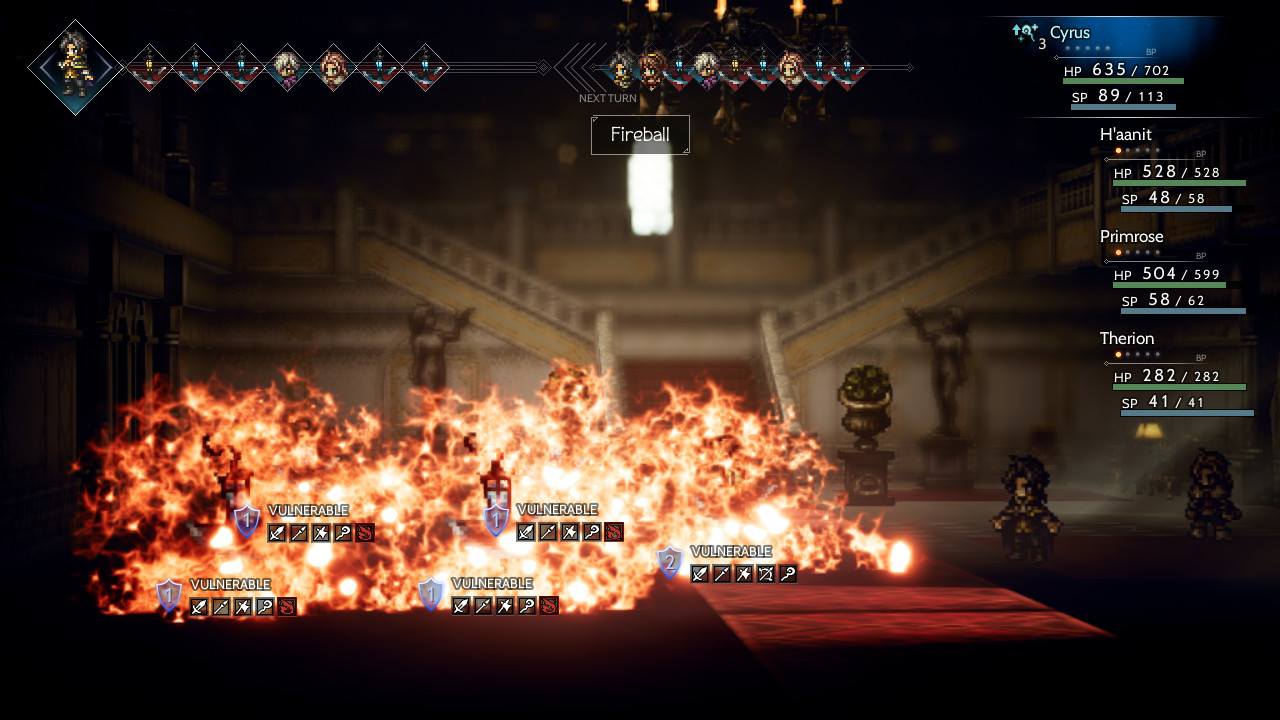
The “old school” mentality brings down parts of the combat, however. The biggest culprit is the need to grind to continue the narratives. Grind can be fun, but for Octopath Traveler it pads out the game's runtime instead. It also doesn’t help that characters you exclude from combat gain no experience, so players may find themselves in a situation where a member or two of their party is severely under leveled for an upcoming boss fight.
There is also little reward for grinding in the game. Dotted across the landscape are a few dungeons of varying levels and numerous cities to explore, but much of the exploration is just simple mazes to hidden treasure chests or boss battles. The dungeons are not that big but save for a few high-level dungeons hiding powerful new classes, they are not worth exploring for loot.
The dungeons are worth exploring for visuals though. Octopath Traveler is a living pop up book, invoking the best of 16-bit sprite work with an HD gloss over it. Using sprites today has become a trope all to itself thanks to the glut of indie games aping retro graphics. Square shows how it should be done here, with well animated, dynamic sprites juxtaposed to cleverly hidden 3D backgrounds.
The games music and limited voice acting are also superb, with special mention of composer Yasunori Nishiki for composing a standout set of tracks for the game. Much like Octopath itself, Nishiki arranged the instrumentation to be simple but memorable, once again invoking the heyday of 90s console RPGs. Many of the tracks are ultimately concertos for pianos, flutes, and trumpets, fully backed by a strong orchestral composition. Of note is the title track of the game itself, starting small and humble before building to a full-blown orchestral piece as instruments are added to the main melody. It is, quite simply, some of the best music composed for games in a long time.
Octopath Traveler Review | The Verdict
It is hard to stray from the path sometimes, as the road can be long and arduous. Whatever unfamiliar pitfalls that come your way make things difficult, but it is these moments that help define the experience, allowing you to reflect on it afterward. Octopath Traveler goes on a similar journey. It is old school in its presentation, but modern in its inner mechanics. It shuns expectations by not being a loud, glorious epic. Instead, it embraces the diversity of human problems in a fantastical world, giving players fulfillment that tugs the heartstrings as you reflect on your own journey through the tales before you.
Octopath Traveler strayed from the path, and in taking the road less traveled, it became a journey that all should experience for themselves.
Our Octopath Traveler review was conducted on Nintendo Switch and was purchased by the reviewer.
Review Summary
Pros
- Eight Different Narratives...
- Excellent Writing and Presentation...
- Gorgeous Graphics.
- Clever Use of Turn-Based Mechanics.
- Refreshing Narrative Structure.
- Fantastic Musical Score.
- Epic in It's Own Way
Cons
- ...That Are Not Connected Together.
- ...Old School in Overall Design.
Have a tip, or want to point out something we missed? Leave a Comment or e-mail us at tips@techraptor.net
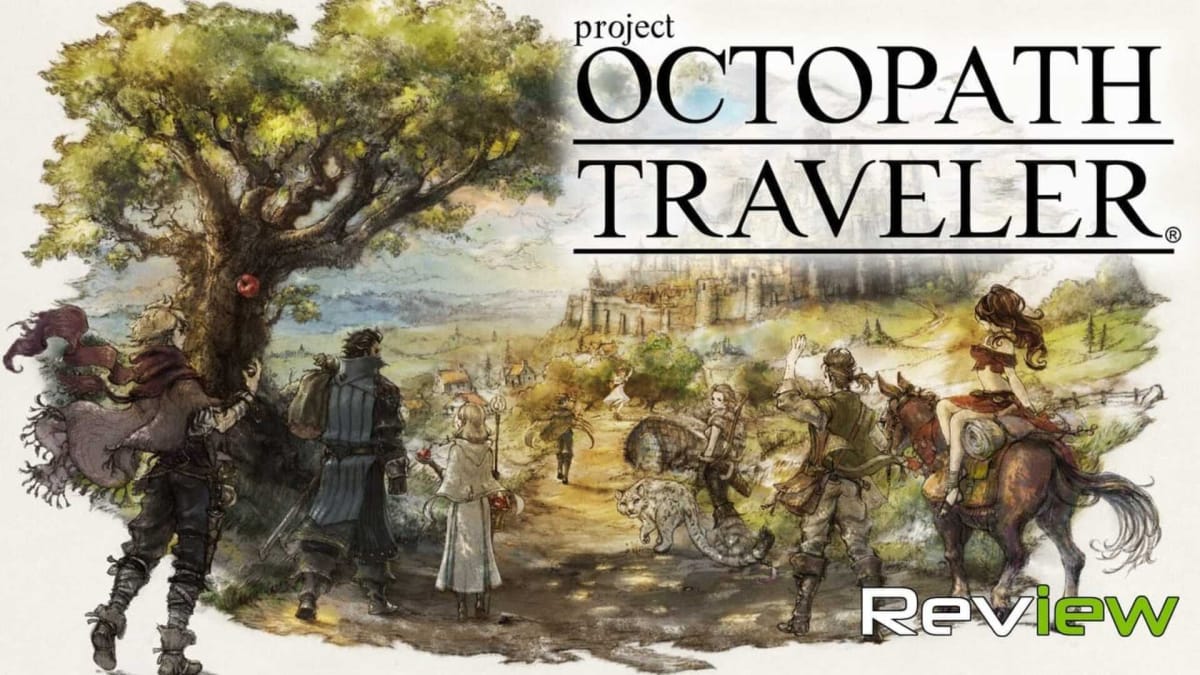
.jpg?itok=eG3w00nI)

